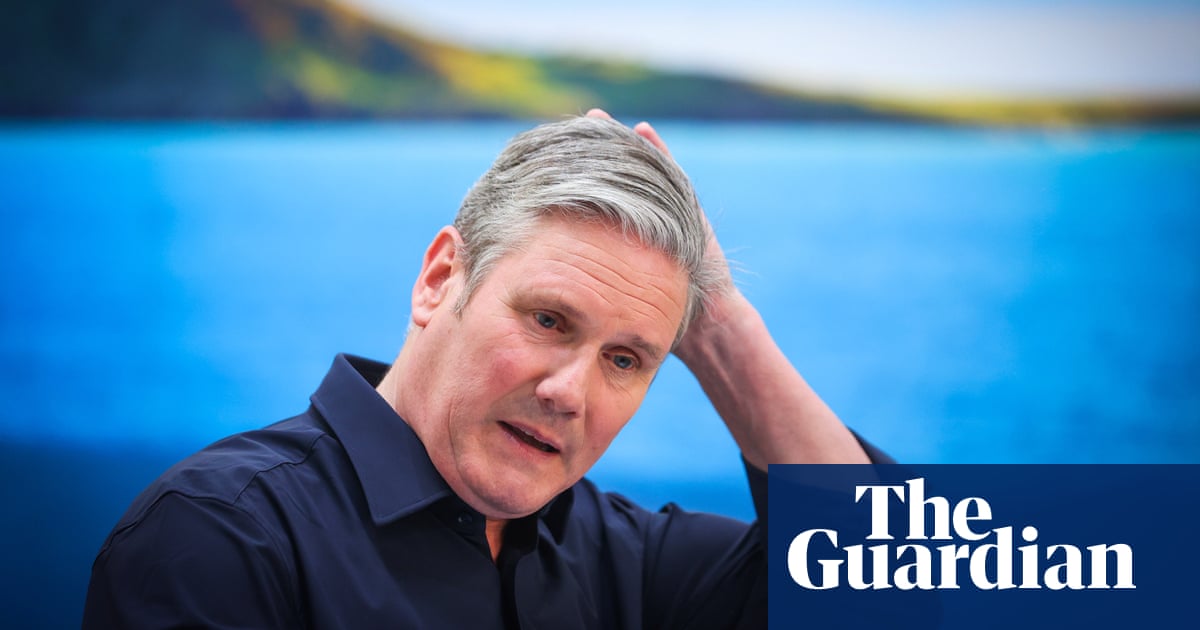Keir Starmer will announce on Thursday that he is scaling back Labour’s £28bn green investment programme after weeks of uncertainty surrounding the scheme.
Senior Labour sources have told the Guardian that Starmer will finally confirm the party is no longer planning to spend £28bn a year on environmental schemes given the economic uncertainty caused by the Conservative government.
Starmer has insisted for several weeks that he still intended to meet the pledge, which was first made in 2021 as part of a promise that Labour would be the greenest government in history. But doing so has become far more difficult since it was made, given that the worsening fiscal outlook has left less room to borrow more without long-term debt levels going up.
The announcement is likely to stoke tensions within the shadow cabinet.
Some shadow ministers have urged Starmer for months to drop the target, arguing that it plays into Conservative attacks about Labour’s fiscal credibility. Others have warned that doing so will only accentuate the feeling among many voters that Starmer cannot be trusted to stick by his promises.
The announcement comes after several weeks of confusion over the fate of the policy.
Labour sources said last week that the pledge was now “dead”, an assessment that was bolstered by comments by Darren Jones, the shadow chief secretary to the Treasury, that the target would now “move around”.
But Starmer himself used the £28bn figure during an interview with Times Radio, in which he said: “We want to have clean power by 2030 … That’s where the £28bn comes in, that investment that is desperately needed for that mission.”
Labour sources have previously said the party would keep the core mission of investing in green infrastructure, as well as already announced plans such as the creation of GB Energy, a publicly owned clean energy company.
The opposition also intends to spend up to £6bn a year on a home insulation scheme, although that also remains subject to the party’s most important fiscal rule to have debt falling as a percentage of economic output by the end of the five-year period.
The change, after a spate of recent government attacks portraying the £28bn figure as a likely tax rise, has been pushed for by key figures around Starmer including Morgan McSweeney, Labour’s director of campaigns, and Pat McFadden, the party’s campaigns coordinator.
While scaling back the green prosperity plan has been under consideration for some weeks, dropping the £28bn annual target, unveiled with great fanfare by Reeves at the Labour conference in 2021, would be politically risky for Starmer and his team.
Ed Miliband, the shadow net zero secretary, and his team have argued strongly for sticking with £28bn for environmental and political reasons.







